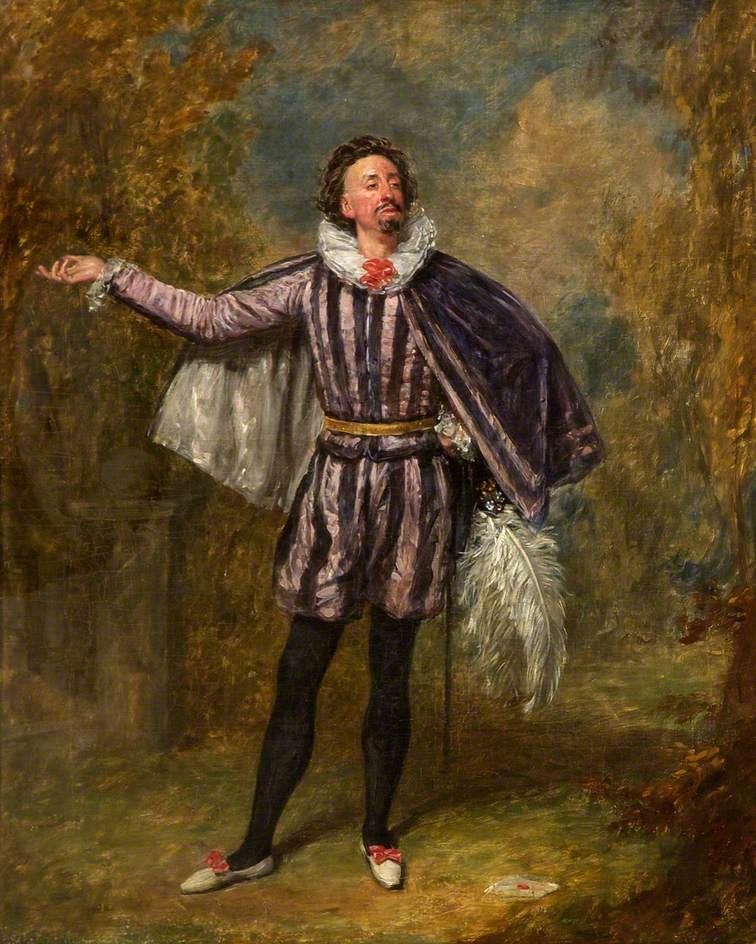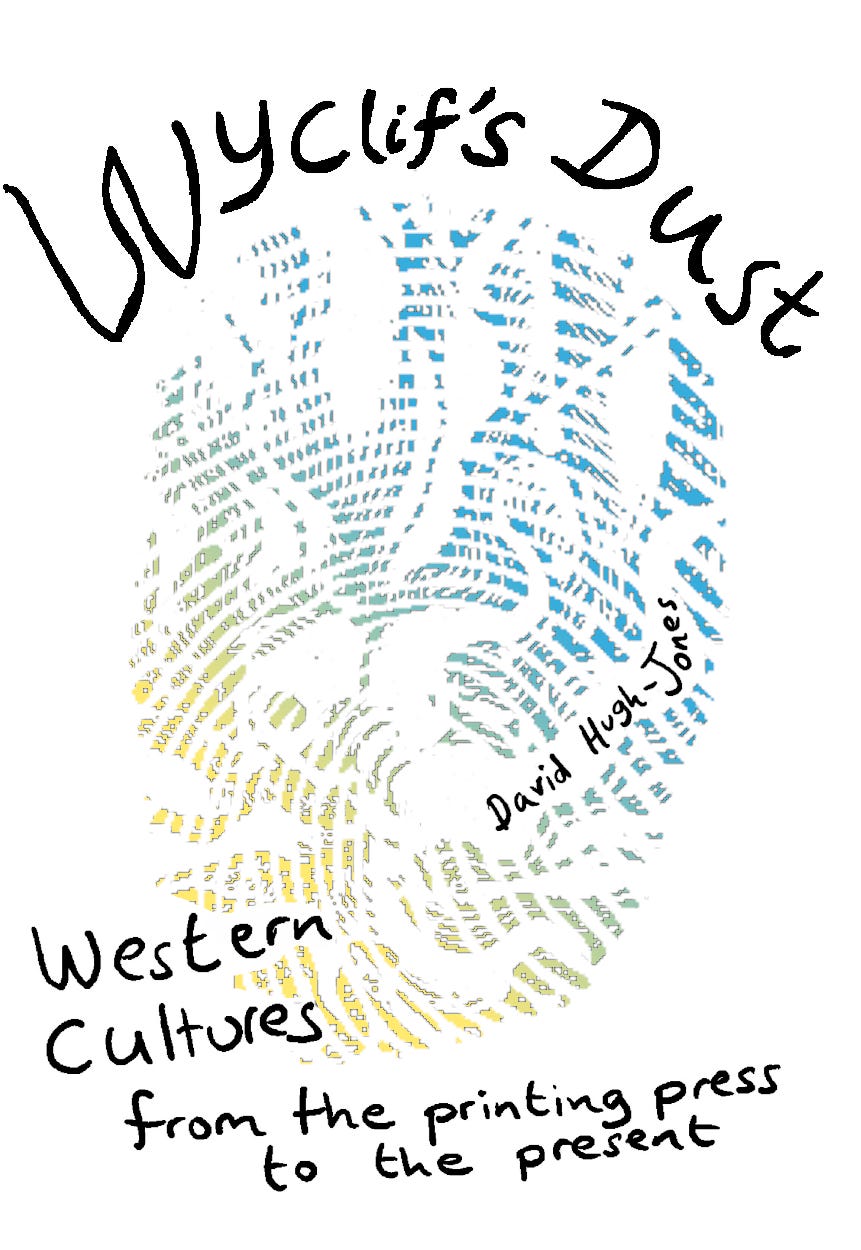“Woke is a religion” is a common claim of the culture war. It’s one of those statements that is obviously true in some ways and false in others. Woke beliefs are passionately held. Believers despise unbelievers. They prefer to associate with other believers. Key concepts like diversity are treated as sacred, et cetera. On the other hand, there’s no formal creed or sacred text, there’s no official hierarchy — diversity officers are hired by universities and companies, not by the Diversity Church — and most obviously no God.
What’s more interesting is that observers reach for this metaphor. I think this says something about the state of the culture.
To anyone born after 1960, this is the first time they’ve seen a public belief system. The mass visual media of the post-war 20th century were not a good mechanism for propagating beliefs. It’s interesting to think why: maybe belief systems need a core of intense believers, people who go far beyond the mainstream, and who ultimately pull the mainstream towards them. But when there are only three TV channels, they can’t afford to cater to a few intense believers. That story fits the fact that cable TV, which let more channels survive with smaller audiences, did give a home to more intense ideologies. Anyway, whatever the reason, it’s true. Even the Soviet bloc never really used TV to propagate socialist ideology. They made lowest-common-denominator entertainment, like everybody else.
So, the second half of the twentieth century was an age of anomie. The old religious belief systems declined and were not replaced. Symptoms of anomie, like crime and addictions, increased. Social trust weakened.
The simplest way to think about social media is as a massive decrease in the cost of broadcasting. That makes it vastly easier to propagate public beliefs. This is what lets so many weird communities thrive. But it also creates a kind of Darwinian cultural soup from which the “fittest” beliefs can rise to dominate the whole society.
What belief system would do that? Well, it would start from ideas that were already widely accepted, so that many people were somewhat predisposed to accept them. At the same time, it would have passionate supporters among cognitive elites and influencers, who would be motivated to pass it on. You can see where I am going here. Feminism, anti-racism and gay rights all fit this bill in the 1990s and 2000s. You’d also expect it to be deeply focused on language and discourse. Social media is all about talk, so you’d expect belief systems which think talk is very important, and which thrive on policing talk, to be easily enforceable on social media. In turn, examples of successful enforcement boost the belief system and encourage others to try.
Looking back in history, there’s an analogy with the Reformation here. The first result of the printing press is not Enlightenment secularism. It is a modification and intensification of the old society’s pre-existing beliefs. I think woke is a bit like Lutheranism: it starts from an existing belief system and intensifies and purifies it. It really takes time before you get ideological movements that are, so to speak, wholly from the age of print itself in both form and content: Calvinism would probably be the first.
Eventually, truly new movements and ideas may emerge from the cultural soup. Some already have:
Effective altruism can trace its roots back to utilitarian philosophers like Peter Singer. But it also gains adherents from tight-knit online communities like the readers of Scott Alexander’s original blog, Slate Star Codex.
Veganism existed long before the internet, but it took off in the 2000s.
The YIMBY movement, which focuses on removing zoning restrictions and allowing more building, is a network of bloggers and posters. This is a single-issue political movement, but it is linked to broader questions of growth orientation and long-termism. Maybe also, part of what social media enable is that movements focusing on a very specific problem can swiftly rise to prominence. Net-native belief systems can be more like tents than houses, easy to put up and take down.
Famously and less tastefully, the alt-right had online roots.
More generally, the 2010s and 2020s saw an explosion of moral phrasemaking: gaslighting! The humblebrag! White saviour complex! Luxury beliefs! These new words for bad behaviour reflect a society establishing, and fighting over, norms in a new, global field of discourse.
In short, we are returning, or starting to return, to the way large societies usually operate: where behaviour is governed by a highly developed system of publicly acknowledged norms. These norms constrain behaviour, even profit-seeking behaviour in the marketplace. And arguments about norms are an essential part of discourse. (This also implies that they aren’t a “distraction” from the “real issues”, meaning the economic issues, by the way. If norms have power then they are a real issue, including an economic issue: for example, it matters economically whether billions of dollars go into ESG funds.)
Thinking of woke as a “religion”, or public belief system, actually also illuminates the anti-woke backlash.
Part of conservatism is preserving old ways from change. In stereotype, it’s like “moral standards are threatened by decadent youth!” But the older generation now are exactly those boomers who grew up in the sixties and overturned the old moral standards. That’s what they want to defend. It’s Classic Rock conservatism.
Donald Trump is a child of 1970s New York. One of the funniest moments of this US electoral cycle was when DeSantis went all-in on an extremely online form of culture-war politics, including attacks on LGBTQ, and Trump simply posted a short video of him dancing to Village People at a poolside in Florida. It was a perfect riposte. DeSantis was trying, just a bit too hard, to build a counter-movement. Trump wants to appeal to those who just want to grill and who, like him, don’t take any form of ethics very seriously.
Equally revealing and funny is that Elon Musk became radicalized because one of his sons changed gender and is now a daughter. Musk had five kids, his wife divorced him, then he had two more in a relationship with a Goth pop singer. And now he stands up for traditional gender roles. Again, “traditional” here means the way very rich men (a) have always behaved and (b) could avow publicly, in a brief window of time between 1970 and 2010. (Quote from his daughter: “I had a weird childhood. I can't believe I'm as normal-seeming as I am.”)
Pushing the historical analogy, the anti-woke types are like the anti-Puritans of the 17th century. These included Shakespeare, who had a professional interest in mocking the theatre-shutting movement. They stood up for old-fashioned religious rituals and superstitions, for “good fellowship,” i.e. drinking, and for established authority. The Puritans had the most advanced thinkers, but their opponents had the best jokes.
But the essential thing about public belief systems is that they are normal. All previous civilizations had them. Any ancient historian can count off Roman beliefs, or Athenian beliefs, on their fingertips, and of course Christianity was nothing else. You can and should complain about woke excesses, or even about the new belief system as a whole, but the underlying process is not going away. As Francis Fukuyama put it, anticipating the end of the Great Disruption, humans are “rational creators of cultural rules”. Norms serve a purpose, because humans have to live together: we affect others as soon as we breathe or cast a shadow. And since social norms are vaguer than written law, and there is respect and influence to be gained by calling out villainy, norms will always carry the potential to be misused by bullies and bigots. All we can really do is push the discourse towards where we think it should be.
If you liked this, you might enjoy my book Wyclif’s Dust: Western Cultures from the Printing Press to the Present. It’s available from Amazon, and you can read more about it here.
I also write Lapwing, a more intimate newsletter about my family history.







Let's talk a bit about history. National, ethnic, religious identities used to be huge. They got slowly turned down after WW2, and by the 1970's there was a certain idea of a free-floating atomic individual who does not belong anywhere, has no group membership, and is nothing but being himself. Think Frank Zappa.
It kinda worked for straight white men and no one else, because 1) everybody treated them according to their perceived group identity anyway 2) they needed their group as a support group and safe space 3) actually maybe it did not work even for straight white men that well, because it can get lonely.
As a result, we got "women nationalism", "gay nationalism" "BIPOC nationalism". Note that these are subtly different from feminism in the Nussbaum sense or anti-racism in the Douglass sense. These can get... angrier, because they focus less on justice and more on a friend-enemy distinction. But the good news is that they are mellowing out right about now. Everybody got tired after 12 years of fighting.
Now the straight white guys are in wondering what the hell to do. They trying to form a tribe would still be perceived as dangerous, perhaps Nazi. And there are actual Nazis now and it would be cool not to be mistaken for them. I think no one figured it out yet, but there will be "coded tribes" here. For example, heavy metal or country or motorbike fandom.
You should also be honest and frank about founder worship in the US, The Apotheosis of Washington is a thing after all. Is the MAGA and tea party awakening not coming much from the same place but struggles to modernise and universal the experience in a way that strikes many groups as very distant from their aspirations.
https://en.wikipedia.org/wiki/The_Apotheosis_of_Washington